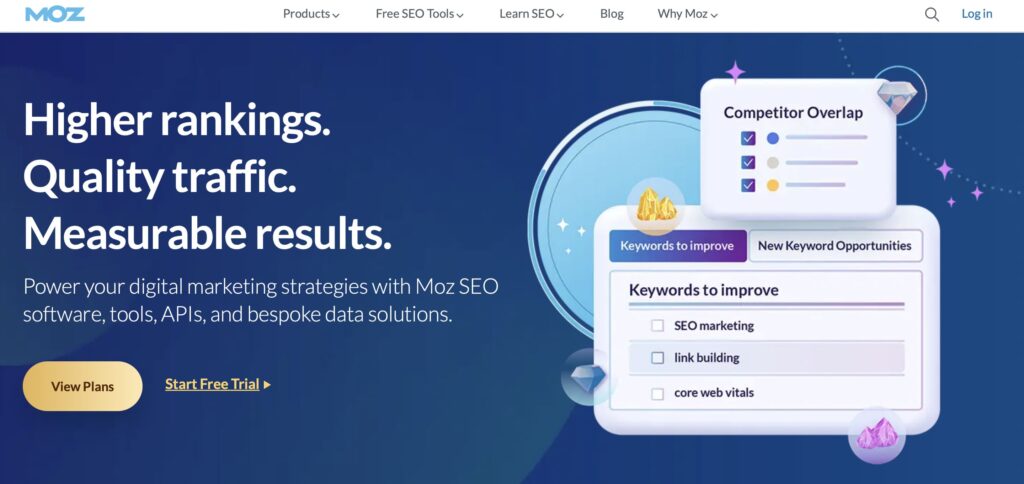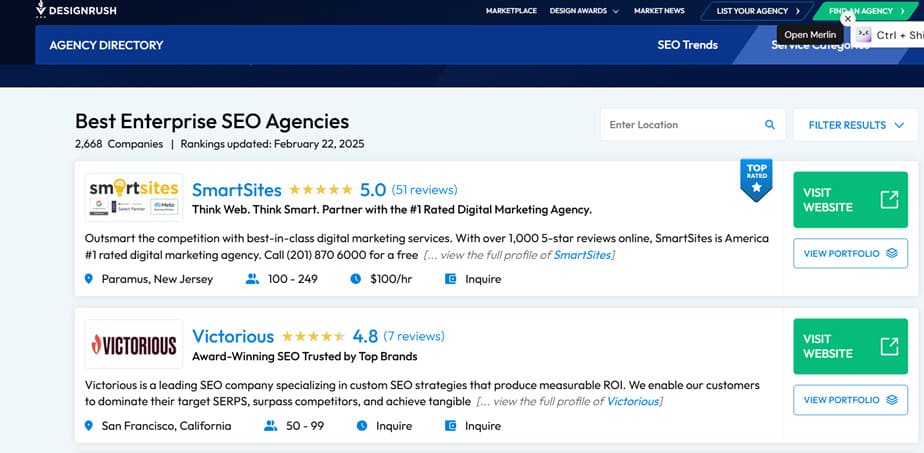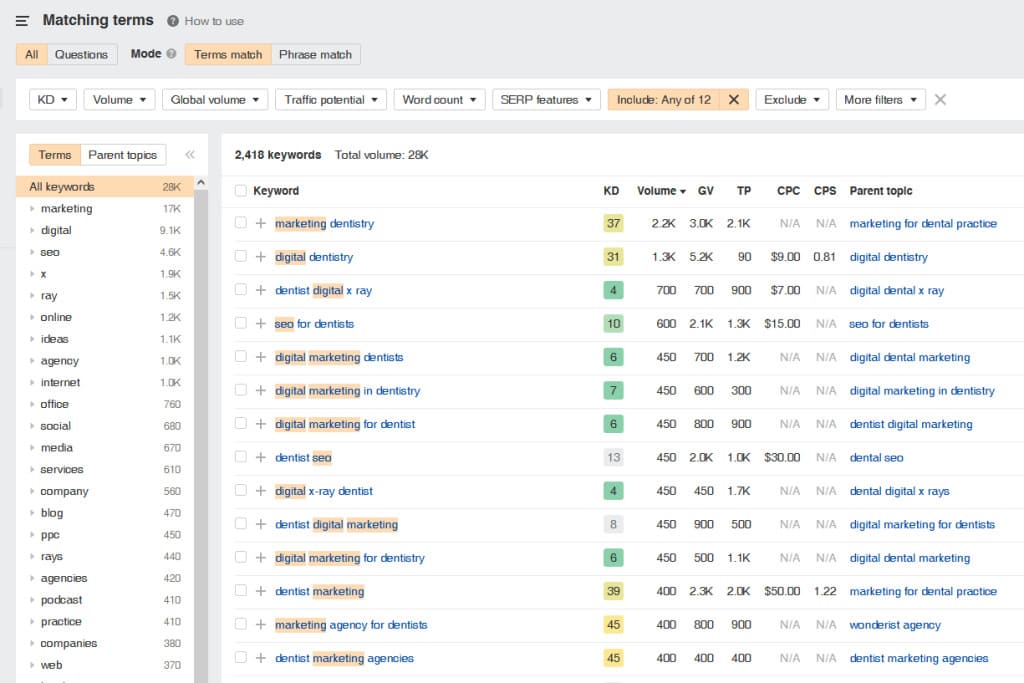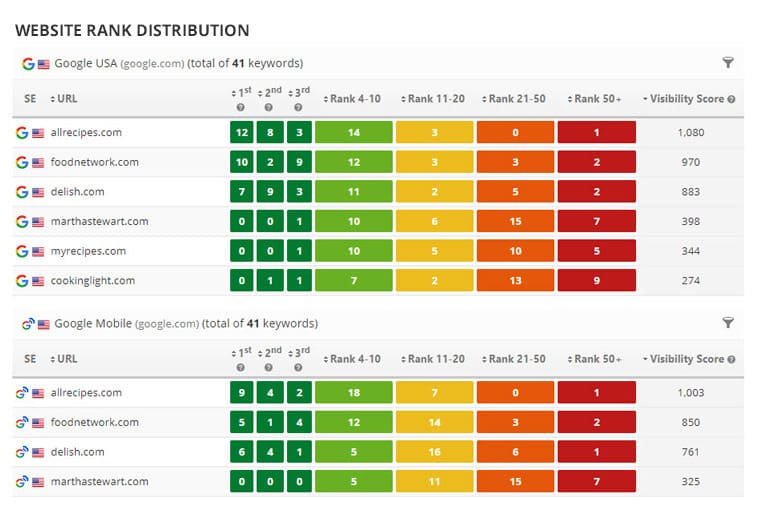What Does an SEO Manager Do: Responsibilities, Skills & Career Guide
To develop and implement an SEO strategy to increase organic traffic to a business website from search engines like Google and other online platforms, it is important to have the support of a competent SEO manager. This is a qualified SEO specialist who, by following reasonable practices and digital marketing tools, can ensure high-quality content creation to make the company or brand’s website useful and relevant for users searching for something specific on search platforms.

What Is an SEO Manager?
First and foremost, it is important to emphasize that an SEO manager is a competent professional who knows how to work with digital marketing technologies. The specialist develops a strategic action plan for the business by setting tasks and goals. The SEO manager is also knowledgeable about what kind of website content needs to be useful, creative, well-written, and as relevant as possible to Internet users. Additionally, the SEO manager works with modern marketing tools like keyword research, and implementing on-page SEO. The expert also possesses another important skill — they know exactly why technical SEO is necessary and how to use it, understand why each keyword matters in the overall concept of content marketing, and grasp the power of search engine optimization.

Skills for SEO Managers
An SEO expert helps ensure the full optimization of a business’s website and all necessary content for Google and other online systems. That’s ultimately helping attract more internet visitors and qualified leads to the company’s or brand’s website via this channel. The professional conducts thorough market research, performs analyses and audits, implements marketing tools, and uses leadership skills for the business’s future success while working on the project. As a result, their salary is quite good. For example, one prominent company with a strong SEO strategy is Moz, known for its search engine optimization tools and educational resources.

Technical and Analytical Skills
For an SEO professional, it is essential to understand the technical SEO aspects of a website, regardless of the platform it is built on. This includes architecture, page load speed, mobile adaptation, and code. Knowledge of HTML, CSS, and the basics of JavaScript will help in enhancing the business project. Analytical skills include working with data, interpreting metrics (GA4, GSC), traffic analysis, and identifying weak points in the promotion approach to improve them.
Content and Marketing Expertise
Professional SEO requires an understanding of branded content. Specifically, how to create valuable content that attracts an audience and aligns with search intent. It is important to be able to work with key keywords, analyze competitors, adapt content for E-E-A-T, and develop a roadmap for building a link profile for external websites with backlinks to the business website. Knowledge of PR and digital marketing basics also strengthens the SEO plan.
Project Management and Leadership Skills
An SEO manager coordinates teams of web developers, copywriters, designers, and marketers, sets tasks, and ensures deadlines are met (deadlines are always important). Time management, strategic planning, and resource allocation skills help manage even the most complex and labor-intensive business projects. Leadership qualities are essential for motivating the team working on the brand or company website’s promotion, effective communication with clients and other specialists, and implementing innovative SEO solutions.
Core Responsibilities of an SEO Manager
Typically, an SEO manager responsible for high-quality business project management is tasked with content development, comprehensive audits, and full enhancement and adjustment (if necessary). The expert also works on various technical improvements on the brand or company’s web platform, conducts traffic analysis, and acts according to a previously prepared and approved business plan developed from scratch. For example, many global companies like Adobe, Amazon, Uber Freight, Seagate, and others collaborate with SEO agencies specializing in SEO services.

Keyword Research & Content Optimization
An SEO specialist conducts in-depth keyword research, analyzing frequency, competition, and search intent. They identify promising queries, forming a marketing strategy that helps the business site attract targeted traffic. SEO tactics include not only the organic integration of keywords but also improving the content structure, metadata, headers, and image alt tags. The SEO professional also ensures the uniqueness and quality of the texts.

On-Page & Technical SEO
In this area, the SEO specialist is responsible for internal improvements on the business website, including configuring titles, meta descriptions, URL structure, and on-page SEO, internal links. They monitor the proper use of H1-H6 headings, alt attributes for images, and the logical content structure. Technical SEO aspects involve improving page load speed, configuring responsive design, fixing indexing errors, working with robots.txt and XML sitemaps, removing duplicate content, improving structure, and much more.
Link Building & Off-Page SEO
To increase a website’s authority, an SEO professional develops a strategy for link building, which includes guest posting, crowd marketing, and affiliate programs. They analyze the quality of external links, avoid spammy resources, and build effective partnerships with bloggers, media outlets, and niche websites. An important aspect of their work is managing anchor text lists, diversifying the link profile, and removing harmful links through the Google Disavow Tool. Additionally, they engage in SERM by tracking brand mentions and managing reviews.
Performance & Ranking Analysis
Regular performance analysis of SEO campaigns is a key responsibility. The professional uses analytics tools (Google Analytics, Google Search Console, Ahrefs, SEMrush) to monitor the business website’s rankings, organic traffic, click-through rates (CTR), and conversions. It’s important not only to record changes but also to identify the reasons behind position fluctuations, analyze competitors, and adapt the promotion roadmap. Furthermore, they assess behavioral metrics, improve user experience, and develop recommendations for further improvements based on reports.

Cross-Team Collaboration
The professionals work closely with content marketers, developers, UX/UI designers, and PPC specialists. They ensure that content aligns with the SEO plan and that technical SEO teams implement necessary improvements on time. The expert also trains employees in SEO basics, develops guidelines for creating optimized content, and interacts with clients when working in an agency. Essentially, they ensure that marketing efforts contribute to a unified goal (such as traffic growth, improving the website’s visibility, etc.).
Career as an SEO Manager
All SEO specialists have the opportunity to advance in their careers because there is always room for growth in the content marketing field. Web technologies and innovations are constantly evolving, so the Internet market regularly presents new, creative, interesting, and unique developments. Monitoring content marketing trends to accomplish tasks at a high level is one of the key goals to strive for to gain a global reputation. Moreover, it’s important to know how to manage an SEO team effectively to successfully promote business projects in the online space and become more competitive.

How to Become an SEO Manager?
To become an SEO expert in this challenging field, you need to master the fundamentals of professional SEO promotion, analytics, work with Google tools (GA, GSC), and content marketing skills. It would be useful to take specialized courses, gain practical experience, and stay updated on changes in search engine algorithms. Soft important skills are also important, specifically analytical thinking and communication with clients.
SEO Manager Salary and Job Market Trends
The earning potential of an SEO professional depends on experience, region, and, of course, the marketing company itself. On average, entry-level specialists earn less, but experienced professionals can receive competitive salaries. The demand for SEO experts is growing as modern businesses are investing more in online promotion. It’s important to develop skills to remain competitive in such a changing market.
FAQ
Do SEO managers need any qualifications?
SEO experts may not require formal qualifications, but knowledge and skills in professional SEO, as well as experience in the field, are very important. Experience in conducting SEO audits, improving content, data analysis, and understanding search engine algorithms is essential. Certifications from companies such as Google or Moz can increase trust from employers and help with career growth.
How to become an SEO manager?
To become an SEO expert, you need to develop skills in SEO, including studying search engines, content action plans, link building, and working with analytics tools. You can start in a role such as an SEO analyst or content specialist and gradually progress to a higher level. It’s also beneficial to maintain blogs, participate in courses and webinars, and stay on top of the latest trends and changes in online algorithms.
What is the difference between an SEO manager and an SEO analyst?
SEO experts and SEO analysts have similar tasks but with differences in focus. An SEO expert is typically responsible for providing strategic guidance for a business project, coordinating the SEO team, analyzing the effectiveness of SEO campaigns, and achieving the brand or company’s goals. An SEO analyst, on the other hand, focuses on gathering data, analyzing metrics, and monitoring the positions and effectiveness of current SEO activities.
What is the difference between an SEO manager and a digital marketing manager?
An SEO manager focuses on optimizing a website for search engines to improve its ranking, traffic, and visibility. Their tasks include keyword research and strategy development, on-page and off-page SEO, technical optimization, and analytics. A digital marketing manager oversees broader online marketing strategies, including SEO, PPC, social media, content and brand marketing, and email campaigns. They coordinate various channels to achieve overall business goals. In short, SEO is a subset of digital marketing.





